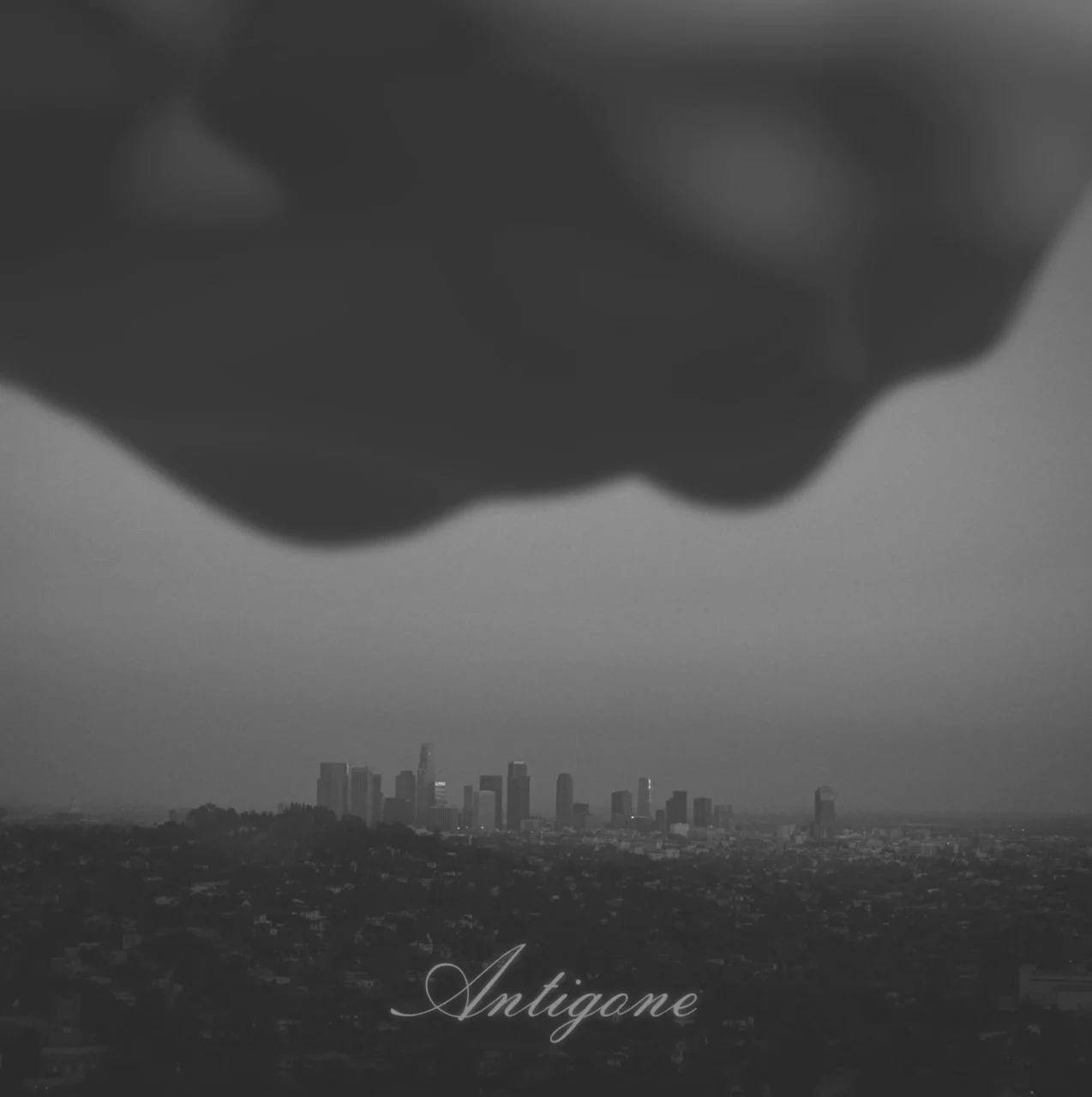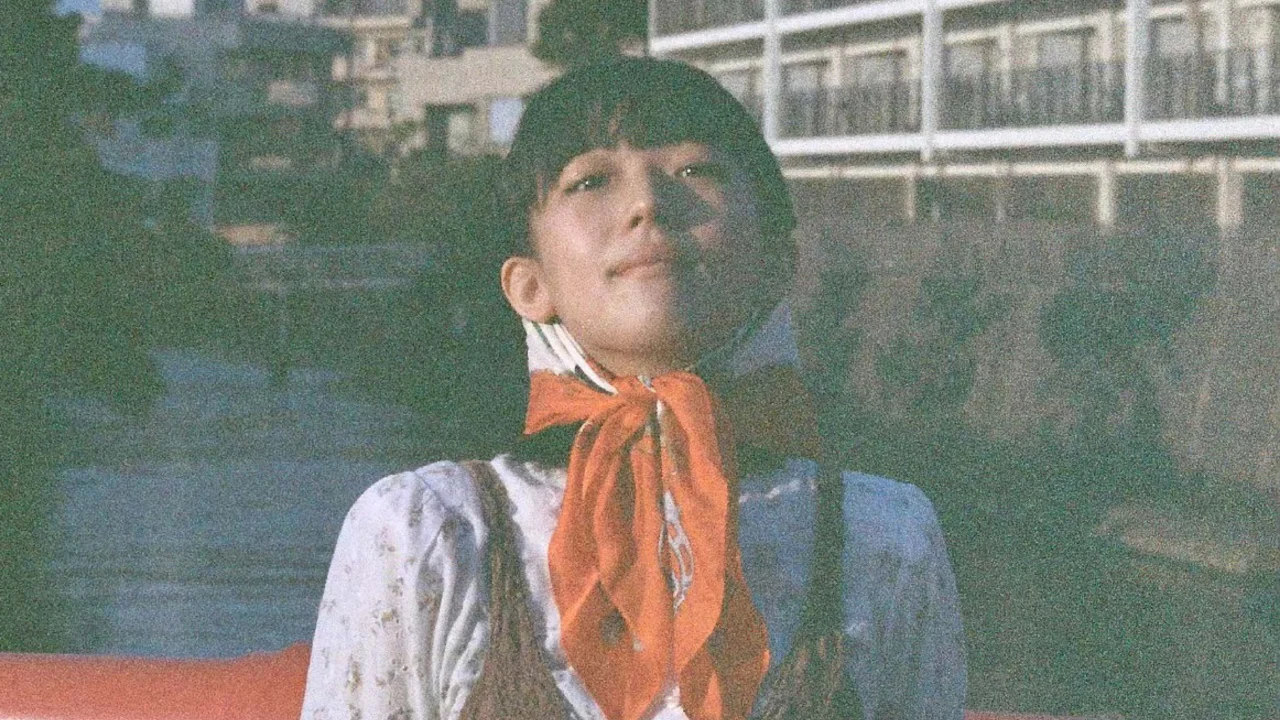In a quiet town blessed with nature, plans to build a glamping site stir a deeper conflict — one that echoes the theme of “undecidability” woven throughout Ryusuke Hamaguchi’s film ‘Evil Does Not Exist’ (2024). This very tension courses through Eiko Ishibashi’s new album, Antigone, which draws inspiration from the ancient Greek tragedy of a sister caught between loyalty and law.
Ishibashi channels both raw anger and hesitant doubt, reflecting on grief and resistance in a world that demands impossible choices. Here, she shares how Antigone came to life — a work deeply entwined with the complex systems and social realities surrounding music and the artist today.
INDEX

A musician based in Japan who plays piano, synthesizer, flute, marimba, drums, and other instruments. She has released albums on labels such as Drag City, Black Truffle, Editions Mego, and felicity. In 2021, she composed the music for Ryusuke Hamaguchi’s film ‘Drive My Car.’ Since 2022, she has been a resident artist at NTS. In 2023, she collaborated again with Hamaguchi, creating the music for ‘Evil Does Not Exist’ and the silent film ‘GIFT,’ which features live performances. In March 2025, she released Antigone, her first vocal album in seven years, on Drag City.

The Shared Emotion of “Anger” Between Ishibashi and Hamaguchi
In a previous interview about Ryusuke Hamaguchi’s film Drive My Car (2021), I heard that “anger” is a source of inspiration for Ishibashi-san’s creative work, and I felt that you seem very angry this time around.
Ishibashi: Yes, that’s true. I also borrowed some of Hamaguchi-san’s anger, and maybe it took shape in this work.
I heard that the film Evil Does Not Exist originally developed from GIFT, a silent film planned as visuals for your live performances, which then evolved into a full-length movie. Did those experiences have a strong influence on this latest work?
Ishibashi: They were created almost simultaneously and in parallel. When I saw Evil Does Not Exist, I felt a refreshing sense that my own thoughts and discomforts had been concretely expressed through the visuals. It made me realize, “Hamaguchi-san was angry too!” and I was able to compose the music for the film just like that. I believe there is a connection in the source of energy behind this work as well.
Do you discuss social issues, politics, or international events with Hamaguchi?
Ishibashi: We don’t often talk about broad global issues, but we do discuss topics that relate to everyday life.
While doing interviews with Hamaguchi for Evil Does Not Exist, I realized many viewers saw the film as a social statement. I don’t think the film was necessarily meant to be overtly social, but since life and society are so closely linked, it’s natural for people to interpret it that way. At the same time, I feel many people prefer to place “social evil” outside themselves.
Hamaguchi’s films tend to explore social themes like capitalism, feminism, and human rights, right?
Ishibashi: Yes, and when you live your life, it’s impossible not to confront these issues personally.
I felt that Antigone also carries a heightened awareness of these issues.
Ishibashi: I’m not sure. In recent years, I’ve often been outside Japan, and when I’m on planes looking for something to read, I tend to choose documentaries or nonfiction rather than stories. I’ve read books by Han Kang and about Thai political history.
At the same time, traveling to various countries, I’ve started to feel that the world is moving in a clearer, more unified direction—one that many want to see. I think the shock of war plays a part in this, but there’s also this idea that if you don’t speak out against something, it’s the same as agreeing with it. That’s a very frightening thought.
These kinds of things have always existed, but now it feels like it’s finally coming to a head… What used to be just a vague feeling has suddenly escalated into matters of life and death. The way the world has declined since COVID is really alarming.
It’s reassuring that there are people who think this way. Did you approach your creation with a serious tone in mind?
Ishibashi: I had those thoughts, but I wanted the music itself to drift more freely, in a lighter, more floating way [laughs].
























